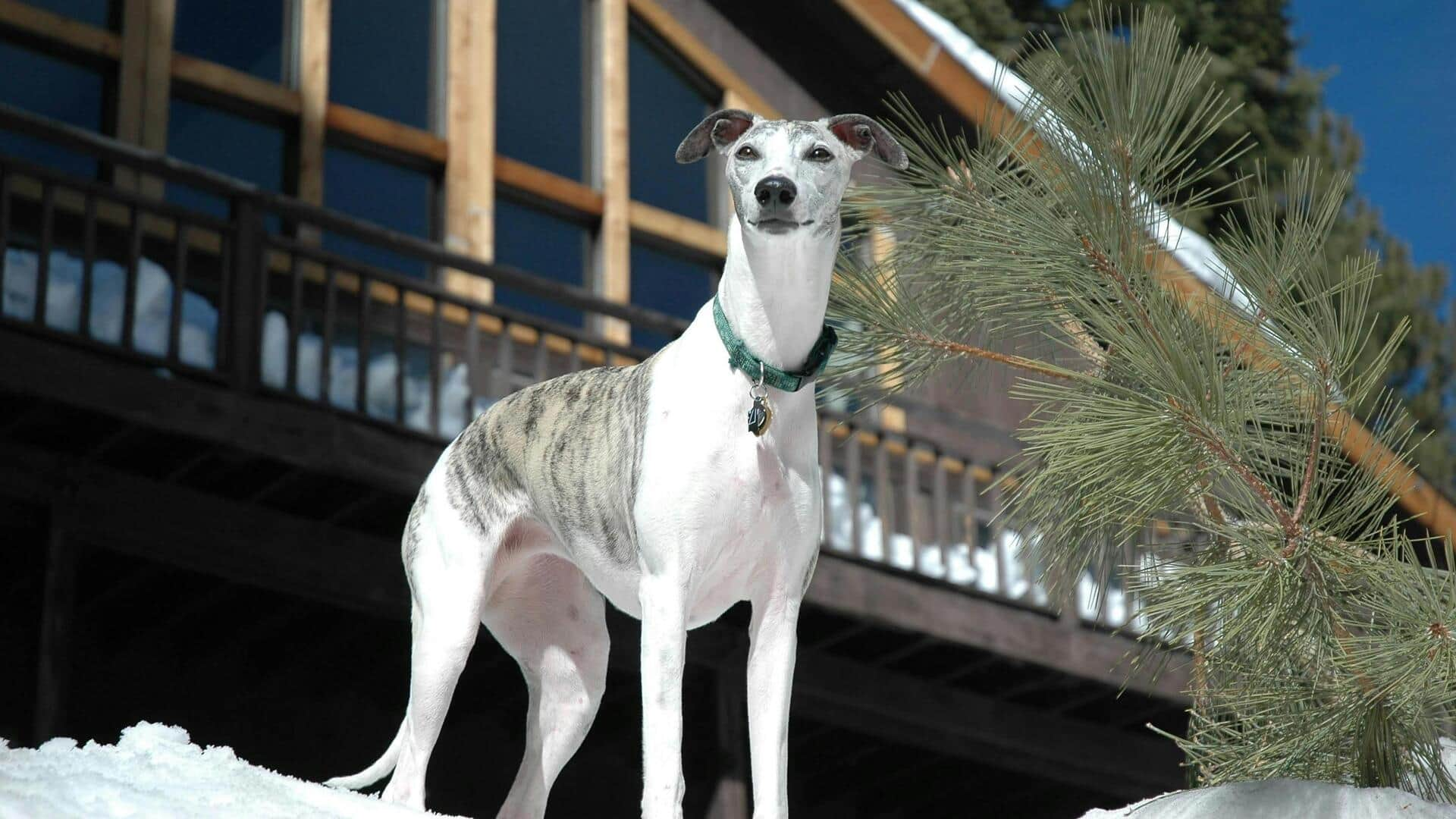
Got a Whippet? Take care of its joints. Here's how
What's the story
The Whippet, a breed known for its agility and speed, is a medium-sized sighthound that embodies grace and athleticism. Despite their sleek build and seemingly delicate appearance, Whippets are generally robust dogs. However, like many breeds, they can be prone to specific health issues, particularly concerning their joints. Maintaining joint health is crucial for these active dogs to ensure their quality of life. These tips will help you do so.
Tip 1
Regular exercise regimen
Consistent and appropriate exercise is vital for Whippets to maintain healthy joints. Due to their high energy levels and athletic nature, they require regular physical activity but it should not be excessively strenuous to avoid joint stress. Activities like brisk walking or controlled running can help keep their muscles toned and joints flexible without causing undue wear and tear.
Tip 2
Balanced nutrition
Nutrition is a key factor in maintaining joint health for Whippets. Their diet should include a well-balanced mix of essential nutrients, with a focus on omega-three fatty acids for their anti-inflammatory effects. It's crucial to keep an eye on their weight as well, since being overweight can increase stress on the joints and potentially lead to arthritis.
Tip 3
Joint supplements
As Whippets grow older, adding joint supplements to their diet can offer health benefits. Key ingredients like glucosamine and chondroitin are known to aid in maintaining joint function and enhancing mobility. Nonetheless, it's imperative to consult a veterinarian prior to introducing any supplements. This ensures that the chosen supplements are suitable for your whippet's unique health requirements.
Tip 4
Regular veterinary check-ups
Regular veterinary check-ups are essential for monitoring the joint health of Whippets. Early detection and diagnosis of conditions like hip dysplasia or other joint-related issues can significantly influence management and treatment. Veterinarians can also offer customized guidance on exercise and nutrition tailored to each dog's specific health needs. This ensures a proactive approach to maintaining their joint health.